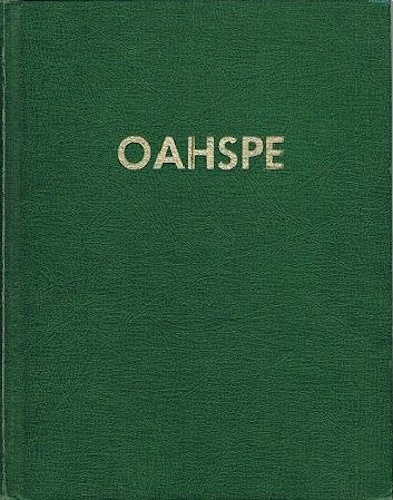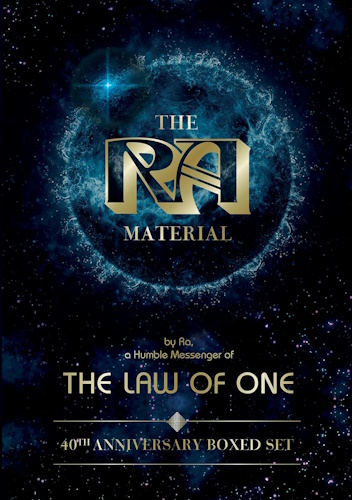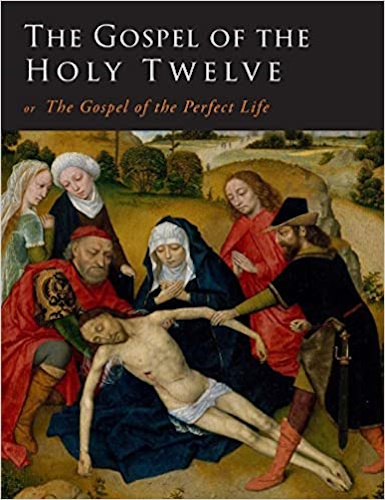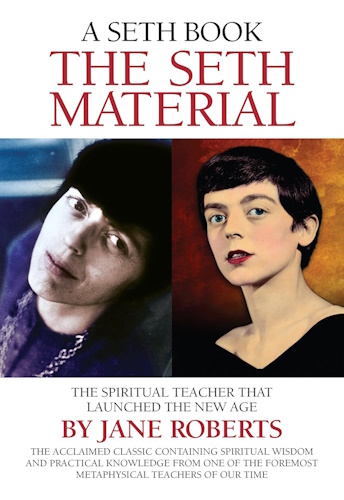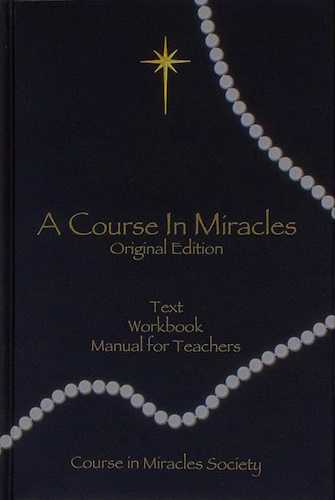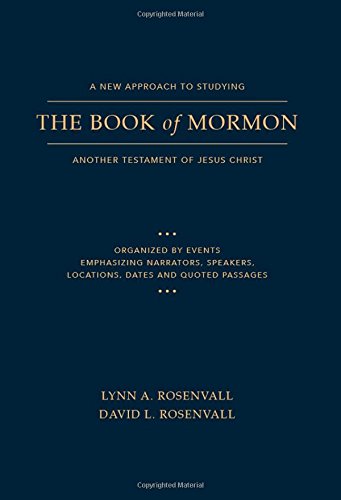
![]()
![]()
Book of Wars Against Jehovih
Chapter XLV
1. JEHOVIH suffered the self-Gods to prosper for more than four hundred years; and Te-in, and Sudga, and Osiris became the mightiest Gods that ever ruled on the earth. Know, then, these things of them, in heaven and earth, whereof the libraries of Jehovih's kingdoms relate more fully that of which the following is a synopsis, to wit:
2. First of Te-in, then Sudga, then Osiris. And of Te-in's heavenly kingdom, two vice-Gods, Noe Jon and Wang-tse-Yot. Chief high marshal, Kolotzka, and under him thirty thousand marshals. Chief general, Ha-e Giang, and under him one hundred thousand generals and high captains. Of these, twenty thousand were allotted to the dominion of mortals in Jaffeth; the others served in heaven, mostly about the throne of Te-in. Chiefly distinguished
p. 436
as Gods on the earth were Te-in's fourteen chief generals: Kaoan-cat, Yam-yam, Tochin-woh, Ho-jon-yo, Wah-ka, Oke-ya-nos, Haing-le, Lutz-rom, Le-Wiang, Thu-wowtch, Eurga-roth, I-sa-ah, To Gow and Ah Shung.
3. These generals were divided into two parts, seven each; and they were allotted equally, of the twenty thousand rank generals deputed to the earth; and these again were allotted each thirty thousand angel warriors.
4. Te-in had said to these fourteen chief generals: When ye come to the earth, and finding two cities near together, both of which worship other Gods than me, ye shall divide yourselves into two parts; and one army shall go to one mortal city and the other to the other, and by inspiration and otherwise ye shall bring the two cities to war against each other, until both are broken down, or destroyed. After which ye shall inspire another city, that worshippeth me, to come and possess both of those that are destroyed. Better is it to make our enemies kill each other than to kill them ourselves.
5. And such was the mode of warfare by Te-in in that all the land of Jaffeth was subdued unto himself in less than a hundred years. Save the matter of a million Faithists, scattered here and there; and of the Listians who were in the mountains and wildernesses. And great and costly temples were built in all the cities of Jaffeth, and dedicated to TE-IN, CREATOR AND RULER OF HEAVEN AND EARTH.
6. Now, as to the worshippers of Joss and Ho-Joss, they were not converted but subdued, and they worshipped their God in secret, and made rites and ceremonies whereby they might know one another and the better escape persecution. Many of these rites partook after the manner of the ancient rite of
7. Of the great cities destroyed in these wars were: Hong We, Chow Go and Sheing-tdo. For Hong We the wars lasted twenty years; and there were slain within the city five hundred thousand men, women and children.
8. The wars of Chow Go lasted forty years, and within her walls were slain three hundred thousand men, women and children. For Sheing-tdo the wars lasted twenty-five years, and there were slain within her walls three hundred thousand men, women and children.
9. In the destruction of Hong-We there were consigned to ashes four hundred houses of philosophy; two thousand four hundred colleges, and twelve thousand public schools. All of which had been made glorious in the reign of Hong, the king of the city. Because he worshipped Ho-Joss, his great city was destroyed.
10. In Chow Go there were destroyed six hundred houses of philosophy and two hundred colleges of Great Learning. Here was the Temple of Jonk, which was dedicated to worship of Joss (God), and which, in building, required twenty thousand men twelve years. It had two thousand pillars of Awana stone, polished; and at the blood altar it had twelve thousand skulls, of which the great king Bak Ho was slaughterer in the name of Ho-Joss. The throne of worship for the king was set with diamonds and pearls; and it had a thousand candlesticks of gold and silver. And the fine silk drapery and fine wool drapery within the temple were sufficient, if spread out, for five hundred thousand men to lie down on and yet not cover up the half of it. And the drapery was painted and embroidered with pictures of battles and wars; and of scenes in heaven. For the ornamentation of which drapery twenty thousand men and women had labored for forty years. All of which were destroyed, together with all the great city and all its riches and magnificence.
11. Sheing-tdo was a city of fashion and splendor, inhabited by the richest men in the world. She had a temple called Cha-oke-king, dedicated to learning, but in fact appropriated to the display of wealth and pageantry. It was round, with a high projecting roof, the eaves of which rested on ten thousand pillars of polished stone. There were four hundred door-ways to enter the temple; but, within each door-way, one came against the square columns of precious stones that supported the roof inside; and to either side of the columns were passage-ways that led into the four hundred chambers within. In the centre of the temple, artificial stalactites, twenty thousand, hung from the roof; these were made of silk and wool and fine linen and painted, and of colors so bright that mortal eye could scarce look upon them, and they were as ice with the sun shining thereon, forming rainbows in every direction. Here came kings and queens and governors of great learning; for here were deposited copies of the greatest books in all the world.
12. Besides the temple of Cha-oke-king, there were seven great temples built to Joss, either of which was large enough for ten thousand men to do sacrifice in at one time. For five and
p. 437
twenty years the people of Sheing-tdo fought to save their great city from destruction, but it fell, and was destroyed, and all the temples with it; by king Bingh it was laid low.
13. Next to these were the following great cities that were destroyed: Gwoo-gee, which had one hundred houses of philosophy and forty colleges for great learning; one temple, with eight hundred polished pillars and two thousand arches; thirty temples of wheat and corn sacrifice; one feed-house, where was stored food for one hundred thousand people in case of famine, sufficient for eight years; and all these, and the libraries of the records of the Gods and Lords of earth, and all things whatever in the city were burnt to ashes.
14. The city of Young-ooh, of two hundred thousand inhabitants, which had seventy houses of philosophy, and thirty-five colleges of great learning, besides many schools; one TEMPLE OF THE STARS, where lectures were given daily to the people to teach them the names and places of the stars and their wondrous size and motion; forty temples of sacrifice, seven of which were large enough to hold all the inhabitants of Young-ooh, the great city. By king Shaing it was laid in ashes, and nothing but heaps of stones remained to tell where the city had been.
15. The city, Gwan-she, which had thirty houses of philosophy, and seventy temples of sacrifice, two Temples of the Stars dedicated to Joss; eighty-five colleges of Great Learning, and also a feed-house, stored sufficiently to feed the city seven years; and there were two hundred thousand inhabitants within the city walls. Twelve years the people of this city fought against the incited plunderers, the warriors under the God Te-in, but were conquered at last, and their city laid low.
16. And the great cities, Ghi, and Owan, and Chong, and Goon, and Ca-On and Jong-wong, and Sow, and Wowtch-gan, and Sem-Sin, and Gee, and Tiang, and Choe, and Doth, and Ah-mai, and Conc Shu, and Guh, and Haingtsgay, and Ghi-oo-yong, and Boy-gonk, all of which had houses of philosophy and colleges of great learning, and public schools, and temples of sacrifice, and feed-houses, and hundreds of thousands of inhabitants. And all these cities were destroyed, and only heaps of stones left to tell where they had been.
17. Besides these, there were more than two thousand cities of less prominence destroyed. And yet, of villages and small cities, so great were they in number which were destroyed, that no man ever counted them.
18. City against city; king against king; man against man; for the inhabitants of Jaffeth were obsessed to madness and war and destruction; almost without cause would they fall upon one another to destroy; for so had Te-in sent his hundreds of millions of warring angels to inspire mortals to destroy all knowledge, and instruction, and learning, and philosophy, and to destroy all trace of all other Gods and Lords, that he alone might reign supreme.
19. And these angels taught mortals how to make explosive powder, and guns to shoot with, more deadly than the bow and arrow; and taught the secret of under-digging a city and blowing it up with explosive powder.
20. So, the fair land of Jaffeth, with its wisdom and great learning, was made as a distracted and broken-up country. In all directions the bones of mortals were scattered over the lands; nor could the land be tilled without digging amongst the skulls and bones of the great giant race of I'huans that once had peopled it.
21. And of those who were not destroyed, one might say: They were a poor, half-starved, sickly breed, discouraged and helpless, badly whipped.
22. And the spirits of the dead were on all the battle-fields, lighting up the dark nights by their spirit-fires, and in the morning and the twilight of evening they could be seen by hundreds and thousands, walking about, shy and wild! But an abundance of familiar spirits dwelt with mortals; took on sar'gis forms, and ate and drank with them, and even did things of which it is unlawful to mention.
23. Thus was Jaffeth won to the God Te-in. Now of Sudga, know ye.
-
Urantia Book, 44:0.11 - The Celestial Artisans
Never in your long ascendancy will you lose the power to recognize your associates of former existences. Always, as you ascend inward in the scale of life, will you retain the ability to recognize and fraternize with the fellow beings of your previous and lower levels of experience. Each new translation or resurrection will add one more group of spirit beings to your vision range without in the least depriving you of the ability to recognize your friends and fellows of former estates.
-
Princess Bride 1987 Wallace Shawn (Vizzini) and Mandy Patinkin (Inigo Montoya)
Vizzini: HE DIDN'T FALL? INCONCEIVABLE.
Inigo Montoya: You keep using that word. I do not think it means what you think it means. -
Urantia Book, 117:4.14 - The Finite God
And here is mystery: The more closely man approaches God through love, the greater the reality -- actuality -- of that man. The more man withdraws from God, the more nearly he approaches nonreality -- cessation of existence. When man consecrates his will to the doing of the Father's will, when man gives God all that he has, then does God make that man more than he is.
-
Urantia Book, 167:7.4 - The Talk About Angels
"And do you not remember that I said to you once before that, if you had your spiritual eyes anointed, you would then see the heavens opened and behold the angels of God ascending and descending? It is by the ministry of the angels that one world may be kept in touch with other worlds, for have I not repeatedly told you that I have other sheep not of this fold?"
-
Urantia Book, Foreword - 0:12.12 - The Trinities
But we know that there dwells within the human mind a fragment of God, and that there sojourns with the human soul the Spirit of Truth; and we further know that these spirit forces conspire to enable material man to grasp the reality of spiritual values and to comprehend the philosophy of universe meanings. But even more certainly we know that these spirits of the Divine Presence are able to assist man in the spiritual appropriation of all truth contributory to the enhancement of the ever-progressing reality of personal religious experience—God-consciousness.
-
Urantia Book, 1:4.3 - The Mystery Of God
When you are through down here, when your course has been run in temporary form on earth, when your trial trip in the flesh is finished, when the dust that composes the mortal tabernacle "returns to the earth whence it came"; then, it is revealed, the indwelling "Spirit shall return to God who gave it." There sojourns within each moral being of this planet a fragment of God, a part and parcel of divinity. It is not yet yours by right of possession, but it is designedly intended to be one with you if you survive the mortal existence.
-
Urantia Book, 1:4.1 - The Mystery Of God
And the greatest of all the unfathomable mysteries of God is the phenomenon of the divine indwelling of mortal minds. The manner in which the Universal Father sojourns with the creatures of time is the most profound of all universe mysteries; the divine presence in the mind of man is the mystery of mysteries.
-
Urantia Book, 1:4.6 - The Mystery Of God
To every spirit being and to every mortal creature in every sphere and on every world of the universe of universes, the Universal Father reveals all of his gracious and divine self that can be discerned or comprehended by such spirit beings and by such mortal creatures. God is no respecter of persons, either spiritual or material. The divine presence which any child of the universe enjoys at any given moment is limited only by the capacity of such a creature to receive and to discern the spirit actualities of the supermaterial world.
-
Urantia Book, 11:0.1 - The Eternal Isle Of Paradise
Paradise is the eternal center of the universe of universes and the abiding place of the Universal Father, the Eternal Son, the Infinite Spirit, and their divine co-ordinates and associates. This central Isle is the most gigantic organized body of cosmic reality in all the master universe. Paradise is a material sphere as well as a spiritual abode. All of the intelligent creation of the Universal Father is domiciled on material abodes; hence must the absolute controlling center also be material, literal. And again it should be reiterated that spirit things and spiritual beings are real.
-
Urantia Book, 50:6.4 - Planetary Culture
Culture presupposes quality of mind; culture cannot be enhanced unless mind is elevated. Superior intellect will seek a noble culture and find some way to attain such a goal. Inferior minds will spurn the highest culture even when presented to them ready-made.
-
Urantia Book, 54:1.6 - True And False Liberty
True liberty is the associate of genuine self-respect; false liberty is the consort of self-admiration. True liberty is the fruit of self-control; false liberty, the assumption of self-assertion. Self-control leads to altruistic service; self-admiration tends towards the exploitation of others for the selfish aggrandizement of such a mistaken individual as is willing to sacrifice righteous attainment for the sake of possessing unjust power over his fellow beings.
-
Urantia Book, 54:1.9 - True And False Liberty
How dare the self-willed creature encroach upon the rights of his fellows in the name of personal liberty when the Supreme Rulers of the universe stand back in merciful respect for these prerogatives of will and potentials of personality! No being, in the exercise of his supposed personal liberty, has a right to deprive any other being of those privileges of existence conferred by the Creators and duly respected by all their loyal associates, subordinates, and subjects.
-
Urantia Book, 54:1.8 - True And False Liberty
There is no error greater than that species of self-deception which leads intelligent beings to crave the exercise of power over other beings for the purpose of depriving these persons of their natural liberties. The golden rule of human fairness cries out against all such fraud, unfairness, selfishness, and unrighteousness.
